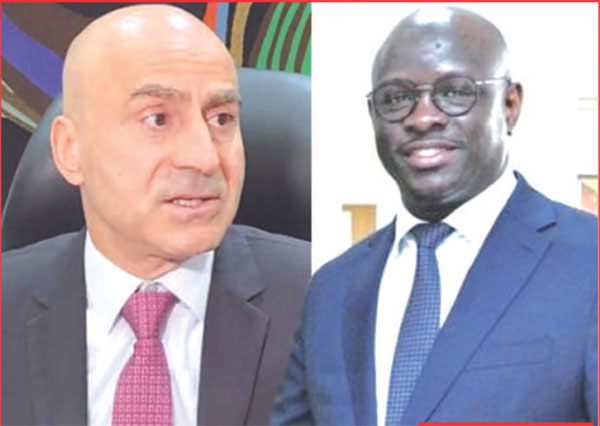Senegal’s Economic Perspectives: IMF’s Recipe

According to projections from the International Monetary Fund (IMF), Senegal’s growth rate for 2024 is maintained at 7.1, while for 2025, the country will reach a double-digit rate (10.1%). The mission of the International Monetary Fund (IMF), which stayed in Senegal from June 6 to 19, 2024 for the second review of the economic and financial program, made this known yesterday during a press conference.
Senegal’s economic outlook is good. The IMF, which has just completed a 12-day mission, notes: “For 2024, growth projections are maintained at 7.1%.” Mr. Edward R. Gemayel, head of mission of the IMF for Senegal who was in front of the press yesterday, specified “It is a drop compared to what we had initially planned, but still 7.1, it is considerable enough. » Regarding non-hydrocarbon growth, it is estimated at 4.8%. Regarding inflation, Mr. Gemayel maintained that it “will continue to fall below 4%”, it is estimated at 3.9%. Other good news announced during this press conference is growth for 2025 which is estimated at 10.1. Inflation will also continue to fall to 2%. Mr. Gemayel also spoke on budgetary policy, of which “the deficit this year will be relaxed to 4.6%”.
New IMF mission: The headache of subsidies
And the head of the IMF mission for Senegal explained: “The initial objective was to reach a deficit of 4.5 3.9% of the GDP, this is due to 3 factors: Payment on debt service interest, energy subsidies and because of the impact of growth which was revised slightly downwards.” In addition, he stressed that it is “important to reduce the level of debt” considered sustainable. Continuing his remarks, Mr. Gemayel indicated that “at the budget level, the consolidation of public finances should continue in 2024-2025 at 4 levels: firstly, the mobilization of tax revenues to achieve the government’s objective of 20%, secondly, the rationalization of exemptions which weigh on the budget which is a shortfall estimated at 800-900 billion CFA francs, thirdly, the gradual reduction untargeted and very costly energy subsidies.”
More than 500 billion for energy subsidies this year
The IMF, which has always expressed reservations regarding subsidies, especially in the field of energy, has returned to the charge. The head of the mission warns of the fact that “this year, these subsidies will cost more than 500 billion CFA francs”.
Exploitation of the Sangomar oil fields: Barrel of hope
And added: “If we take the total of the last three years, subsidies, for energy alone, have cost 1,800 billion.” According to Mr. Gemayel, the IMF is not against subsidies, “but they must be targeted.” And the head of the mission argues: “There is a huge amount of spending, just for the last 3 years, the spending was around 1800 billion in energy subsidies. Is this the right way to spend funds when there is a huge need to invest in education, health, and infrastructure? Another incongruity noted by Edward R. Gemayel is the fact that embassies and social partners in Senegal benefit from these subsidies. “The IMF in Senegal should not benefit from these subsidies, and there are so many others, the social partners, the embassies, it is inconceivable that they benefit from these subsidies,” he lamented. Asked about the measures taken to reduce the price of certain foodstuffs, Mr. Gemayel regrets, as with subsidies, that this is not targeted. “We are not against the principle of reducing prices, but these are measures which are not targeted, even the Senegalese who do not need these subsidies will benefit from them, it could weigh on the state budget « , he said.
Lower food prices: Basket of questions
And to recommend: “What we want is for these to be targeted measures and for them to be neutral in terms of the budget. The position of the IMF has always been that to help vulnerable groups, it is preferable to make cash transfers rather than subsidizing products, this gives greater flexibility to households (…).”
By Dieynaba KANE / dkane@lequotidien.sn

